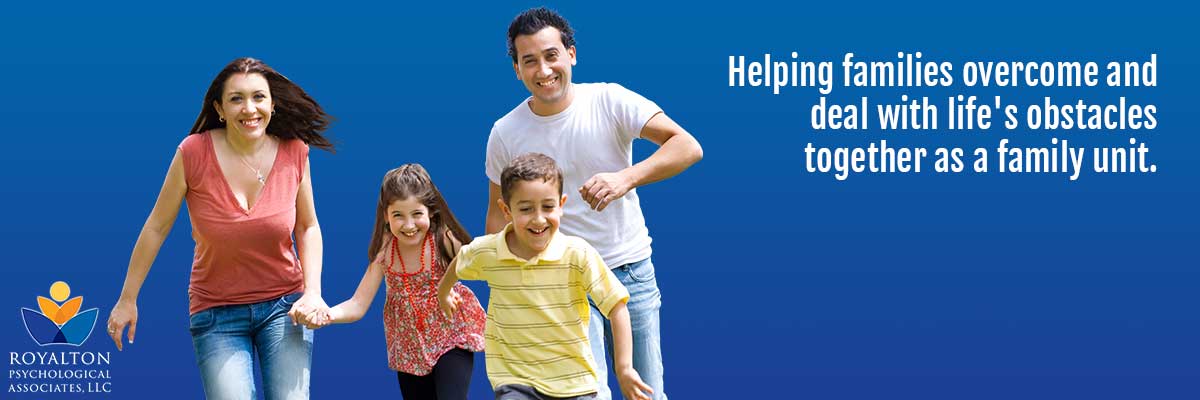Mission
Royalton Psychological Associates (RPA) is an outpatient mental / behavioral health practice that utilizes clinicians who are ready to meet the needs of their clients. In their work with youth and families, these clinicians take pride in developing a strong therapeutic relationship while utilizing the most effective and current therapeutic techniques. The goal of RPA is to ensure that clients feel comfortable while working on their well-being and self-improvement. When completing services, you and your family will feel assured that you can handle life’s difficulties together.
Core Values
- Integrity – Being honest with yourself and others; letting strong morals and values guide you in daily life.
- Understanding – By seeking to understand before being understood, natural and creative solutions to life’s challenges often become apparent.
- Family – The backbone of society and comes in many shapes and sizes; empowered families can deal with life’s challenges together.
- Resiliency – We all have the ability to overcome life’s challenges and thrive.
- Interconnectedness – We are all in the world together and need one another to thrive.
The staff at Royalton Psychological Associates, LLC has a desire to help individuals and their families overcome obstacles and deal with life’s challenges in a healthy and positive way. We believe in helping individuals and families understand where the issues came from and give them skills to meet their goals. The end goal for each individual and family we work with is for them to be able to meet life’s challenges. Our clinicians have a range of experience in different problem areas and ages. Our clinicians work with individuals from early childhood through adult. Staff also specializes in family therapy. We have experience in a variety of issues affecting individuals and families. This includes working with individuals who have experienced traumatic events; who are victims of abuse; and who have anxiety, anger, or depression. We have worked with individuals experiencing bereavement, loss, psychological trauma, suicidal thoughts, and self-injurious behaviors. We have worked with youth experiencing their parents’ divorce, have helped families establish new family norms, helped with adoption issues, and have assisted blended families to come together as a new unit. Our staff has a range of experiences and expertise to help you or a loved one through a challenging time.
We understand that when you call for help, you do not want to be put on a waiting list. There is a concern now that you want to address. We make it a priority to offer you an appointment within a week of contacting us. We know you want help and you want it now. We offer flexible scheduling to help meet your needs.
What is psychotherapy?
Psychotherapy is the use of a series of techniques to treat mental health and emotional issues, as well as psychiatric disorders. Psychotherapy strikes a balance by helping the individual to identify their positive versus negative aspects as well as determining their strong and weak points. Individuals can then use this knowledge to have a positive impact on their future.
What is the difference between psychotherapy, therapy, and counseling
Most people tend to consider all three the same. That is not quite the case. The main difference between psychotherapy and other types of therapy is the focus on the past. In psychotherapy, the clinician will help the individual become better prepared to address the future and any issues that may arise by taking time to focus on past experiences. A strong bond between the clinician and client in the context of therapy can promote the ideal environment to let healing begin as well.
How do I know if I or a loved one might need psychotherapy assistance?
Look for an abrupt change in mood or behavior that has occurred suddenly or in the recent past. If this change is beginning to cause disruption in home, school, employment, or relationships then a visit with a clinician may be helpful. In some cases, the individual may not be able to see this change so friends and family members are the unique position to help determine if someone they know would benefit from psychotherapy. Talk with the person who is experiencing trouble and encourage them to seek help from an outside source.
What can I expect if I begin psychotherapy?
There are myths related to seeing a clinician, many of which involve laying down on a couch while the clinician explores your past relationship with your parents. While these topics may come up in psychotherapy, the clinician role is to help the individual develop better habits and to live a more healthy and fulfilling life.
Does psychotherapy involve only me or can my family and significant others be involved?
Psychotherapy can involve just the individual but a strong support network only strengthens the therapeutic process. In work with children, the family is encouraged to be involved because the family can help guide the child and reinforce positive behaviors outside of the office. In addition, children often act out issues within the family so including the family can help to better understand factors affecting the youth and find ways to help the entire family.
How can I identify a good clinician?
A good clinician understands that the therapeutic relationship is at the core of psychology and the individual will only make gains if they feel comfortable. If after the initial assessment you do not feel that you would benefit from seeing this person, be vocal about your concerns and the clinician will help you find someone that may be a better fit.
Is all we do talk? What if I or my loved one is not a big talker?
Talking is a very important part of psychotherapy, but do not feel like you have to share until you are ready. The clinician will take time to develop rapport and to help you ensure that you feel comfortable and safe talking about your issues and concerns. Once this occurs, talking with the clinician will become more and more natural and important gains can be made. Other techniques such as relaxation strategies, art based activities, and visualization activities involve little talking and have been found to be effective interventions.
Can a young child benefit from psychotherapy? I doubt a child can verbalize everything they are feeling.
Young children seldom sit down and directly tell you everything they are thinking and feeling. Parents would love for that to happen. Play, art, and game based activities are helpful for children as they tend to act out their emotions through play, use art to express themselves, and learn new skills using specialized games. Catching a concern early in a child’s life can help to prevent long term effects in the future.




